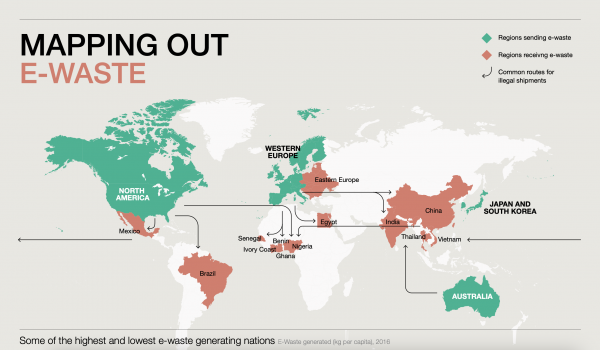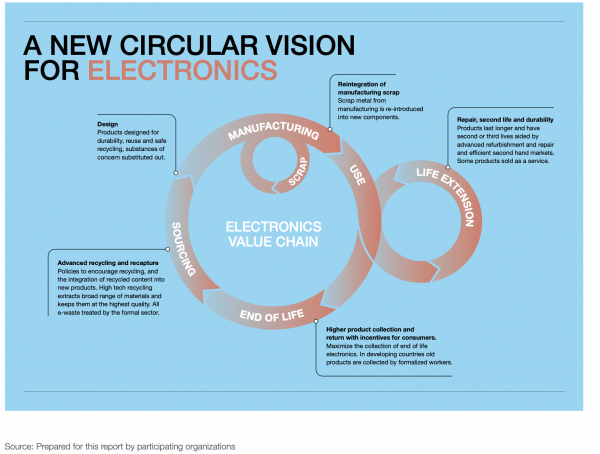E-waste is a significant global issue, which the UK plays an enormous part in. This blog is part 2 in a 2-part blog series where we discuss all things e-waste.
E-Waste Harms
Many nations, including the UK, export electronic waste material to other countries to deal with, where a lack of labour laws and health and safety requirements mean those who process the waste for metal and mineral extraction are not adequately protected.
In fact, Uswitch estimated that around 40% of the UK’s e-waste is illegally exported to be disposed in other countries.

“What we need is to be manufacturing products here and keeping a better handle on where materials are within particular products. We should be designing them so they are more readily recyclable – better labelling and construction would allow componentry to be more readily reused and precious minerals, rescued from landfill” – Professor Richard Herrington, Head of Earth Sciences at the National History Museum
E-waste puts both the environment and workers in danger.
“E-waste can be toxic, is not biodegradable and accumulates in the environment, in the soil, air, water and living things. For example, open-air burning and acid baths being used to recover valuable materials from electronic components release toxic materials leaching into the environment. These practices can also expose workers to high levels of contaminants such as lead, mercury, beryllium, thallium, cadmium and arsenic, and also brominated flame retardants (BFRs) and polychlorinated biphenyls, which can lead to irreversible health effects, including cancers, miscarriages, neurological damage and diminished IQs” – Geneva Environment Network
When improperly disposed in things like landfills, heavy metals from e-waste can contaminate the soil, reaching through to groundwater and making their way into streams, rivers and lakes. This creates acidification and toxification in the water which can lead to the deaths of plants and animals, and makes the water unsafe for human consumption too.
E-waste is fast-growing and complex; it massively affects our environment and also has a negative impact on human health, as well as contributing to a loss of valuable raw materials.
What Can We Do?

Here, we can see a new circular vision for electronics, taken from ‘A New Circular Vision for Electronics – Time for a Global Reboot’. With this, we can see how e-waste is an issue that encompasses the entire lifecycle of electronic devices, meaning that we have a role we can play in this system to do our own part in reducing the harms of e-waste.
Some easy steps you can take are to:
- Opt for a SIM only deal – consider whether you really need the latest phone model or whether the one you have now works just fine. This will help you extend the lifespan of your phone, which is important because mobiles are a huge contributor to e-waste
- If you want to get rid of an old phone, TV, laptop, games console, or other electronic device you can give it to a friend or family member, donate it to charity, or sell it online
- Dispose of e-waste responsibly – electronic items should not be put in the bin. Click here to find out whether you can recycle your item at home, and where to find your nearest recycling point if not